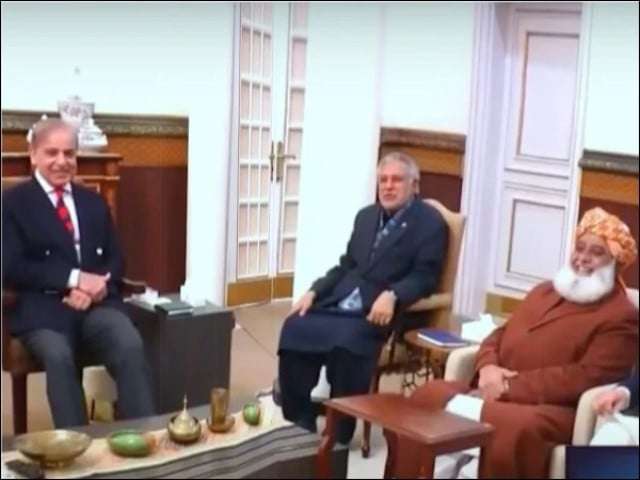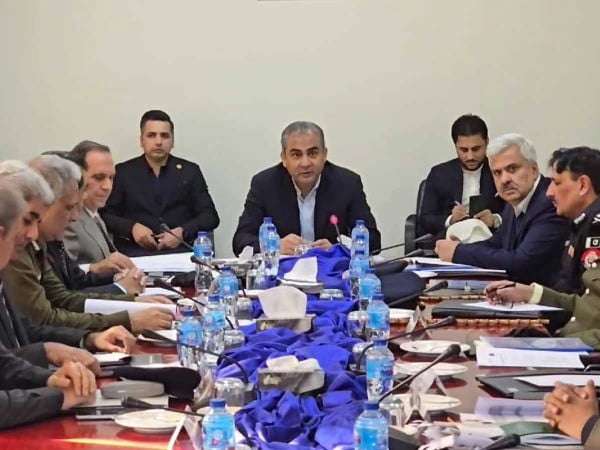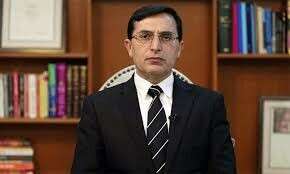Maulana Fazlur Rehman, the chief of the Jamiat Ulema-e-Islam-Fazal (JUI-F), expressed optimism about the resolution of the Madrassa Registration Bill after his recent meeting with Prime Minister Shehbaz Sharif. Rehman, in a statement following the meeting, announced that the government had assured progress on their demands, signaling the potential for good news within a day or two. The Madrassa Registration Bill, which has already passed through both houses of Parliament, was the focal point of discussions.
The meeting, which included key JUI-F members and government representatives, addressed the concerns of religious leaders and provided a clear path forward. Rehman emphasized the government’s commitment to resolving issues related to the bill, particularly after instructions were issued by Prime Minister Sharif to the Ministry of Law to expedite the process.
Background of the Madrassa Registration Bill
The Madrassa Registration Bill has been a significant point of contention between the government and religious groups, with JUI-F playing a central role in advocating for its revision. The bill, now an act after passing through both houses of Parliament, seeks to regulate and register madrassas (Islamic seminaries) in the country, ensuring they comply with government regulations.
What Does the Madrassa Registration Bill Entail?
The bill mandates that all madrassas be officially registered and comply with educational standards set by the government. It also aims to ensure that madrassas align with the country’s broader educational and security policies. While the bill has been passed, it has faced opposition from various religious groups who argue that it infringes on the autonomy of religious institutions.
The government’s rationale behind the bill is to ensure that madrassas provide a standardized level of education and do not become breeding grounds for extremism. The law is part of broader efforts to modernize Pakistan’s education system, including the introduction of regulations for private schools, colleges, and universities.
The Meeting with Prime Minister Shehbaz Sharif
During the meeting with Prime Minister Shehbaz Sharif, Maulana Fazlur Rehman was accompanied by senior JUI-F leaders, including Maulana Abdul Ghafoor Haideri, Senator Kamran Murtaza, and Maulana Asad Mehmood. The meeting also saw the participation of key government figures, such as National Assembly Speaker Ayaz Sadiq, Deputy Prime Minister Ishaq Dar, Law Minister Azam Nazeer Tarar, and Special Assistant to the Prime Minister, Rana Sanaullah.
Key Points from the Meeting
- Prime Minister’s Assurances: After discussing the Madrassa Registration Bill, Prime Minister Shehbaz Sharif assured the JUI-F leadership that their concerns would be addressed promptly. He directed the Ministry of Law to act swiftly, emphasizing that the government’s approach was constructive and aimed at finding common ground with religious leaders.
- Constitutional Clarifications: Maulana Fazlur Rehman clarified that the bill, now an act, had already addressed all objections raised by the president in line with constitutional procedures. He noted that any subsequent objections from the president were constitutionally invalid, as they were submitted beyond the stipulated timeframe. Rehman emphasized that these objections would not affect the bill’s implementation.
- Positive Government Response: Rehman appreciated the government’s positive and constructive response, highlighting that the government’s prompt actions were a step in the right direction. He expressed confidence that the resolution would meet JUI-F’s demands, especially concerning the registration of madrassas and the protection of religious autonomy.
- Next Steps: Rehman expressed hope that within a day or two, the government would announce a positive resolution. He added that he would update the leadership of the Ittehad Tanzeemat-e-Madaris-e-Deenia alliance on the progress.
The Role of the Ministry of Law
One of the central aspects of the meeting was the involvement of the Ministry of Law. After the prime minister’s directive, the law ministry has been tasked with taking immediate action on the madrassa registration issue. Maulana Fazlur Rehman’s confidence in the resolution largely stems from the law ministry’s prompt response and its commitment to adhering to constitutional norms while addressing the concerns of religious groups.
Ministry’s Focus on Legal Procedures
The Ministry of Law has been tasked with ensuring that the Madrassa Registration Bill is implemented in accordance with legal procedures, ensuring compliance while respecting the autonomy of religious institutions. According to government sources, the ministry is working closely with JUI-F and other religious leaders to address their concerns and make necessary amendments if required.
The government’s efforts to address religious leaders’ concerns highlight its recognition of the importance of religious education in Pakistan, and the need for dialogue and collaboration with religious institutions to ensure that the bill’s implementation does not infringe upon their rights.
Optimism for a Positive Outcome
Maulana Fazlur Rehman’s optimism following the meeting stems from the positive and constructive approach adopted by the government. Both sides are committed to finding a resolution that balances the regulatory framework with the needs and demands of religious institutions.
The Path Ahead for Madrassa Registration
The road ahead for the Madrassa Registration Bill is one of cooperation and compromise. While the bill has already passed through Parliament, its implementation depends on the government’s ability to address the concerns of religious groups. The outcome of these discussions will set a precedent for future interactions between the government and religious institutions.
Rehman expressed his confidence that, with the prime minister’s intervention, the final resolution would be in line with constitutional and legal requirements. He emphasized that the JUI-F’s stance remained focused on the protection of madrassa autonomy, and he trusted that the government’s response would reflect this concern.
FAQs
1. What is the Madrassa Registration Bill about?
The Madrassa Registration Bill seeks to regulate and register madrassas (Islamic seminaries) in Pakistan to ensure compliance with educational standards and government regulations, with a focus on eliminating extremism and modernizing religious education.
2. Why is the Madrassa Registration Bill controversial?
The bill is controversial because some religious groups, including JUI-F, believe it infringes upon the autonomy of madrassas and interferes with religious education. There are concerns that the bill could be used to suppress religious freedom.
3. What progress has been made regarding the bill?
After a meeting with Prime Minister Shehbaz Sharif, JUI-F chief Maulana Fazlur Rehman announced that the government had assured progress on the bill. Prime Minister Sharif directed the Ministry of Law to take immediate steps, and positive news is expected within a couple of days.
4. What is the government’s stance on the Madrassa Registration Bill?
The government aims to regulate madrassas to ensure they comply with educational and security standards. The bill is part of efforts to modernize Pakistan’s education system and eliminate extremism in educational institutions.
5. What is expected in the coming days regarding the Madrassa Registration Bill?
JUI-F chief Maulana Fazlur Rehman is optimistic that within a day or two, the government will announce a resolution that aligns with the demands of religious leaders, ensuring that the bill’s implementation respects madrassa autonomy while meeting constitutional and legal requirements.
Conclusion
The recent meeting between Maulana Fazlur Rehman and Prime Minister Shehbaz Sharif marks a significant step toward resolving the concerns surrounding the Madrassa Registration Bill. With both sides showing a willingness to cooperate, a positive resolution seems imminent. The outcome of this issue will be crucial for future government-religious group relations in Pakistan and may serve as a model for addressing other contentious matters involving religious institutions.



